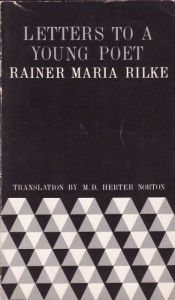“Have patience with everything unresolved in your heart and try to love the questions themselves,” wrote Rainer Maria Rilke, the German poet best known for his inspiring letters and mystical visions of the transformative power of art. If there were ever an advocate for why literature matters, surely Rilke was one.
Born in Prague in the late 19th century, Rilke became one of Europe’s most celebrated poets in the first quarter of the 20th century. But even though he achieved fame in his own lifetime, his life was often marked by emotional turmoil and poverty. He died of leukemia at age 50.
Rilke wrote frequently about the struggle to find inner peace in an external world that was constantly in flux and full of tensions, a preoccupation as pertinent today as it was 100 years ago. He found answers to life’s tough questions by not seeking answers at all. Instead, he embraced the experience and opportunity for an expanded knowledge of the self that difficulty and challenge present us.
“Surely all art is the result of one’s having been in danger,” he wrote, “of having gone through an experience all the way to the end, to where no one can go any further.”
Although he was known as a poet during his life, much of Rilke’s most enduring writing is to be found in the many volumes of his letters that survive. He wrote about many things but always returned to his favourite topic: love. He wrote that all of life (literature, art, civilization itself) serves no other purpose than to prepare us for the hardest of all tasks, and the most important.
“For one human being to love another: that is perhaps the most difficult of all our tasks, the ultimate, the last test and proof, the work for which all other work is but preparation.”
Rainer Maria Rilke must-read:
Letters to a Young Poet
(Public Library Central Branch: Non-Fiction 831.912)

